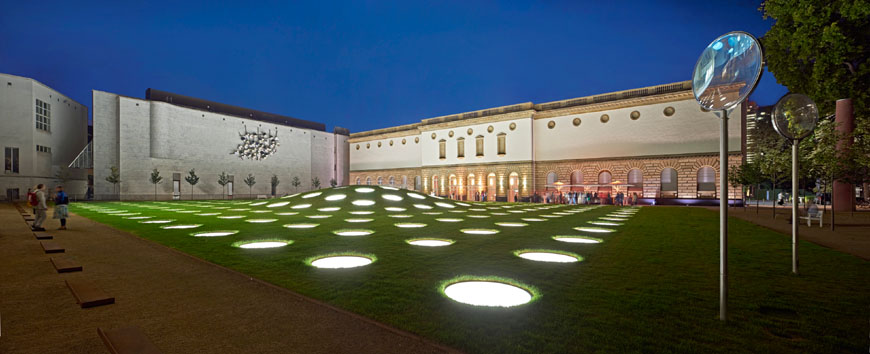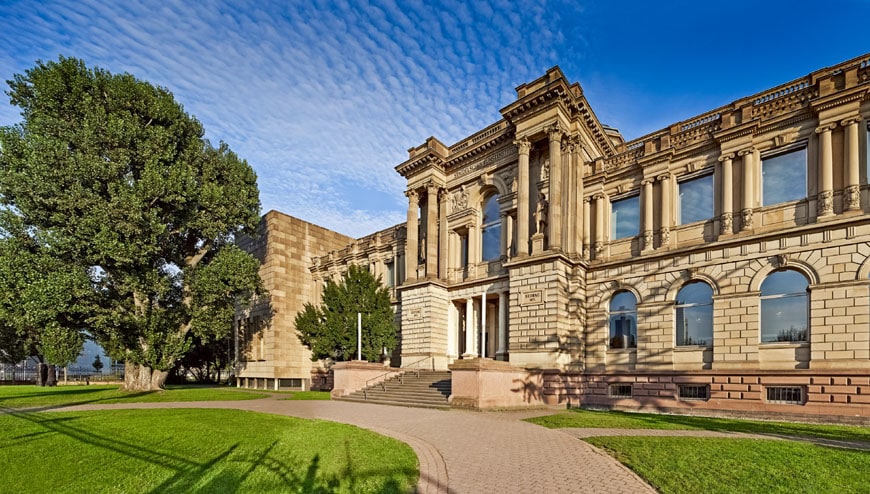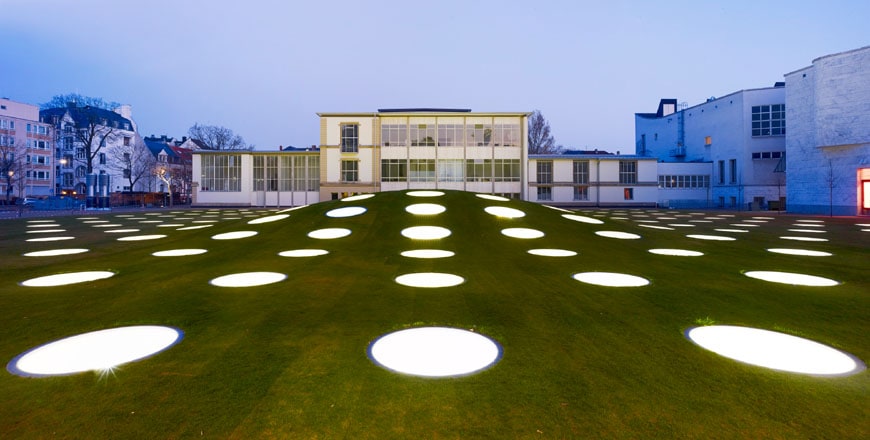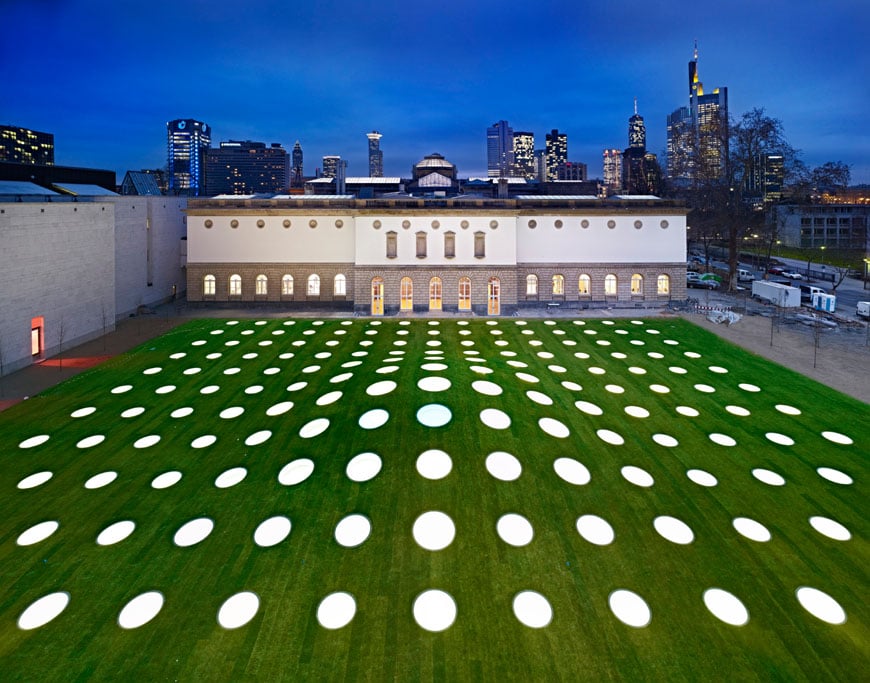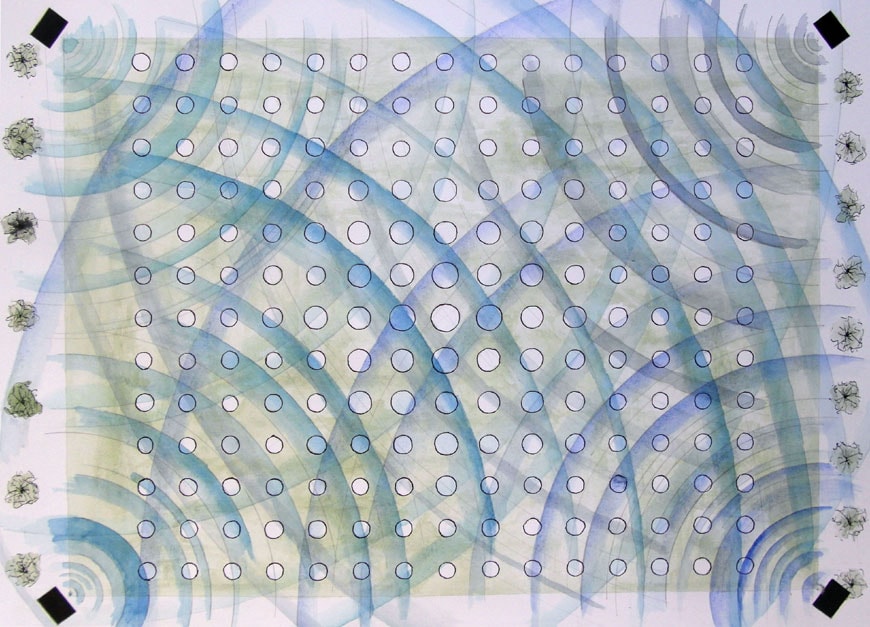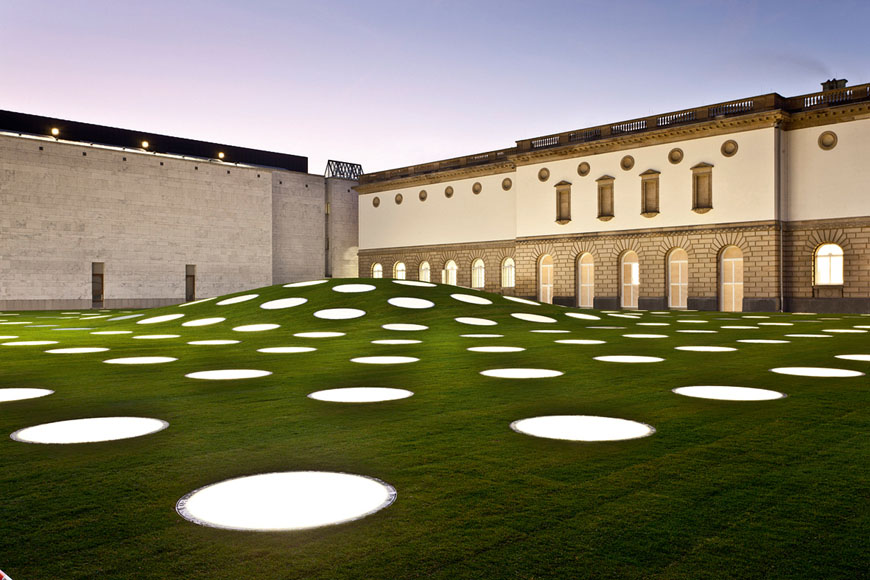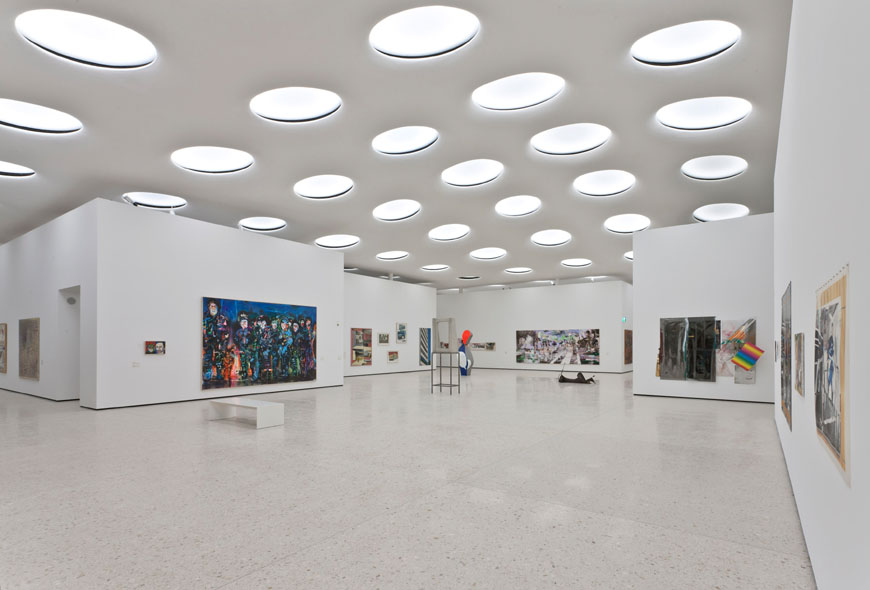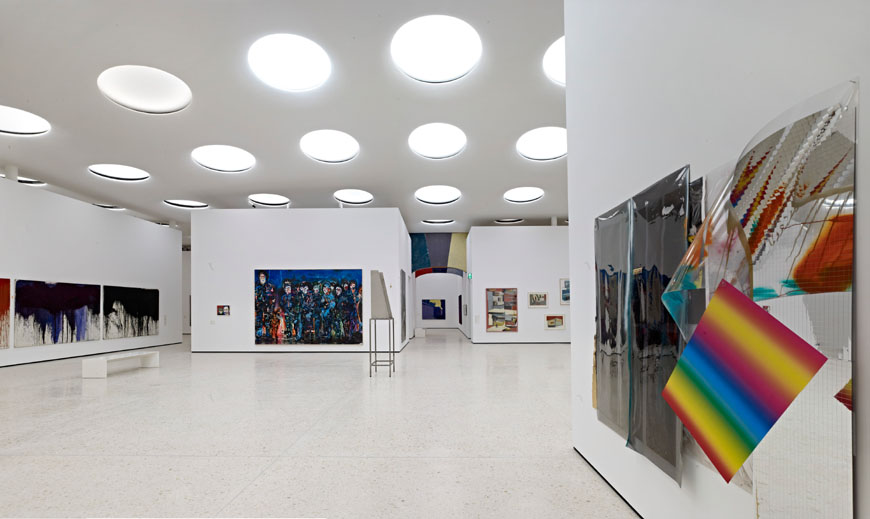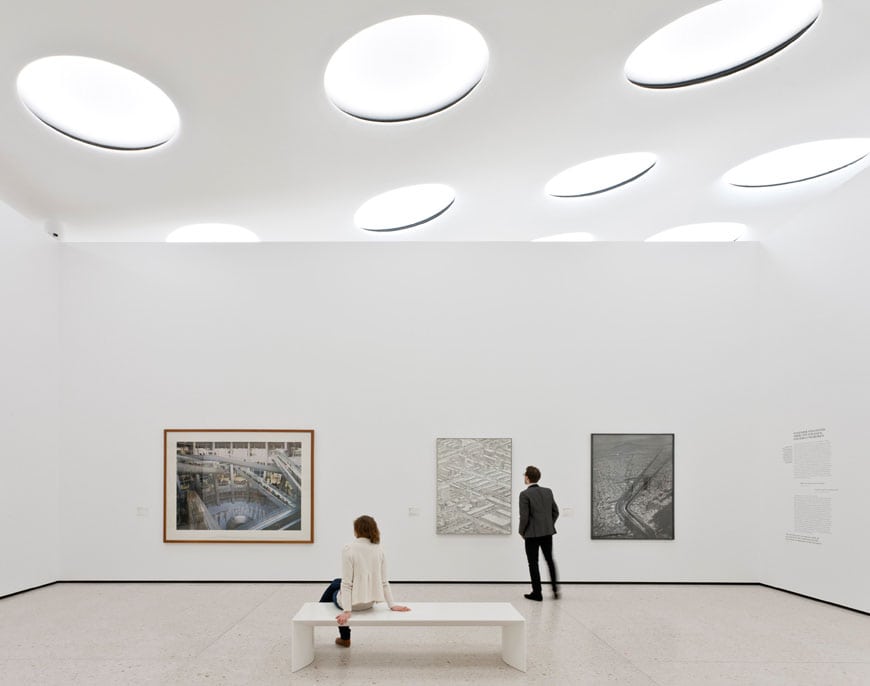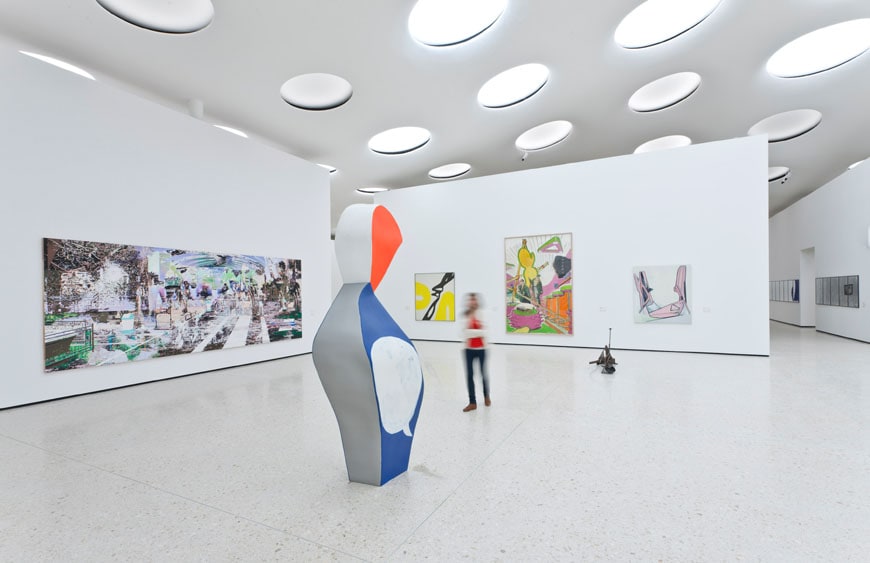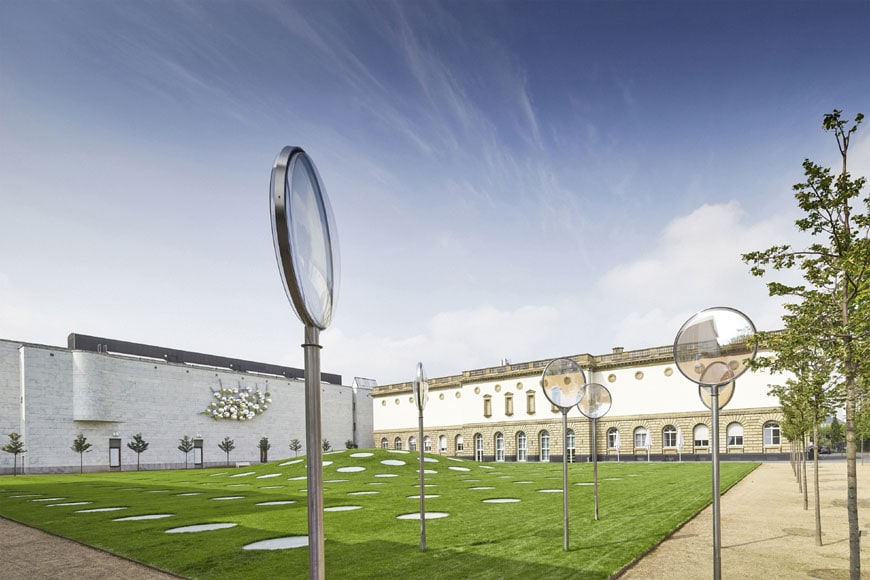Frankfurt, Städel Museum Expansion – Schneider+Schumacher
Städelsches Kunstinstitut
Architectural design: Schneider+Schumacher
Project architect:
Kai Otto, Till Schneider, Michael Schumacher
For photo credits, see captions
Städel Museum expansion, night outdoor view.
Photo Städel Museum. Courtesy of Städel Museum.
Frankfurt | The new underground extension of the Städel Museum
In 2015 the Städel Museum celebrated its 200th anniversary; the museum is indeed the oldest in Germany, founded in 1815 by Johann Friedrich Städel, a wealthy banker from Frankfurt.
Over time the institution, housed in an imposing renaissance-revival building designed by Oskar Sommer, has seen several extensions, but the latest has had a substantial impact on the institution’s image and has soon become its new emblem.
Städel Museum. Exterior view.
Photo Städel Museum. Courtesy of Städel Museum.
Städel Garden; Städel Museum, Frankfurt am Main.
Photo: Norbert Miguletz. Courtesy of Städel Museum.
The Städel addition was completed in 2012 after a design by Frankfurter architects Schneider +Schumacher. The project, along with a general rearrangement and renovation of the existing spaces, included the realization of a 4,151 square meters expansion for displaying the 20th-century art collection of the museum.
The new wing was completely built underground, replacing the old garden with a new gently domed and grass-covered plane resembling a drape. Located beneath it, the exhibition spaces are generously lit through a sequence of round skylights, carefully “dabbing” the surface.
Städel Museum and Städel Garden, exterior view.
Photo: Städel Museum.Courtesy of Städel Museum.
In the Städel Garden IV-The Encryption Garden.
© Alan B. Brock-Richmond und Bernhard Schreiner. Courtesy of Städel Museum.
What is remarkable is how an apparently simple design could produce so interesting spaces both outside and inside the building: the curved roof is accessible and invites the visitors, especially young ones, to run, walk, and wander up and down this unconventional grassy hill, while the underlying galleries are airy and full of natural light.
Städel Garden, Städel Museum, Frankfurt am Main.
Photo: Norbert Miguletz. Courtesy of Städel Museum.
A grid of thin concrete columns, enclosed within the partition walls and thus virtually invisible, supports the ceiling slab. Because built largely underground, the new wing also provides optimal climatic conditions for the exhibited artworks with reduced energy consumption.
Städel Museum, Frankfurt am Main, exhibition views.
Photos Norbert Miguletz. Courtesy of Städel Museum.
As stated earlier, the new spaces are dedicated to the modern and contemporary art collection of the Städel, which includes masterpieces by Munch, Picasso, Matisse, Otto Dix, Max Ernst, Yves Klein, Fontana, Klee, Baselitz, Giacometti, Richter, Francis Bacon, and Jeff Wall, just to name a few.
The Städel Museum has indeed one of the most ample collections of figurative art in Germany, with paintings, sculptures, drawings, prints, and photographs, covering seven centuries from the early 14th century to the present day.
Städel Museum, Frankfurt am Main, exhibition views.
Photos Norbert Miguletz. Courtesy of Städel Museum
Exterior view Städel Museum and Städel Garden
Photo: Städel Museum. Courtesy of Städel Museum.
copyright Inexhibit 2025 - ISSN: 2283-5474

